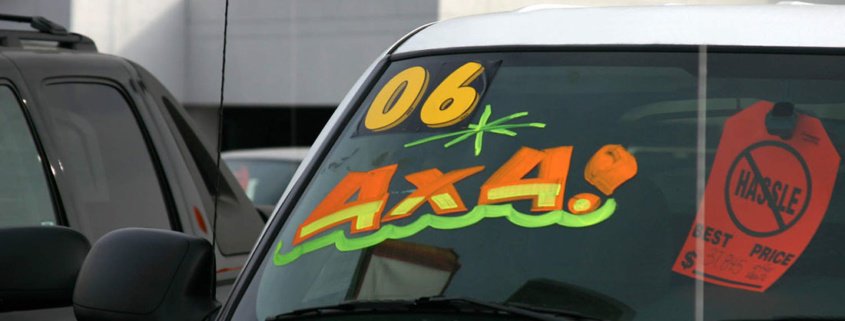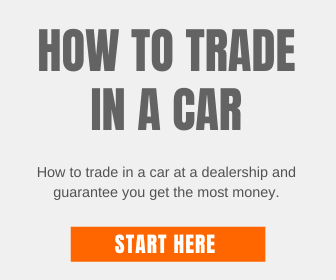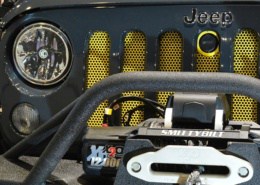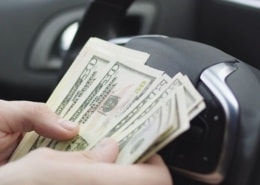The Rebuilt Title Used Car Dealer Scam Explained
The rebuilt title used car dealer scam is also known as the salvage title scam or branded title scam.
This dealer manipulation may cost you thousands of dollars and can be financially devastating if you’re unaware of how to protect yourself from it.
What is a Rebuilt Title Car?
Rebuilt title cars or branded title vehicles are vehicles that have been stolen, recovered in an accident, or damaged to where an insurance company decided to replace the vehicle for the customer because repairing the car would be too costly. The car then receives a salvage or branded title.
Car dealers may sell branded title vehicles as long as they disclose the vehicle has a branded title upfront. This becomes a scam when a car dealer does not disclose that the car has a branded title.
Some dealers will wait to tell you the vehicle has a rebuilt or salvage title right before you sign the contract for the vehicle; they do this in hopes you’re hooked on the car, and it won’t matter to you.
Some companies search out and purchase branded title used cars, make the necessary repairs using cheap substandard parts and then wholesale them to a dealership. These vehicles are back in the system for sale to the general public.
Dealers may be unaware of a car’s accident history or a tarnished title. When buying a used car, truck, or SUV, it is your job to safeguard yourself and your cash.
Why are Branded Title Cars Substandard?
When a used car has a salvaged or rebuilt title, the vehicle has previously been in a major accident, most likely totaling the car. An outside company will buy total loss cars, perform the needed repairs, clean or “wash” the title, and then run them through an auction.
Not all rebuilt used cars are bad, but I strongly encourage you to avoid branded titles or salvage cars of any kind. The problem with rebuilt titled cars is you don’t know who made the repairs on the vehicle and how well they did them. They may have used cheap aftermarket parts or cut corners to save money?
Previously flooded vehicles are the worst. There are a considerable amount of these vehicles in circulation today with the influx of hurricanes, floods, and natural disasters.
Before buying any used car, completing these two steps will decrease your chance of buying someone else’s problem.
1. Get and review a vehicle history report on the vehicle.
2. Have the vehicle inspected by a certified used car mechanic.
You may be able to get a rebuilt used car much cheaper than an average car, but you may also have to keep dumping money into it for repairs in the future. Also, you will never get close to retail value for the vehicle when you’re ready to sell it.
Most dealers will not buy salvage cars from a wholesaler or at an auction. If they do, they will appraise a branded title vehicle by taking the “rough” book value, which is well below wholesale value, and cut it in half.
Buying a vehicle with a rebuilt title is not worth the savings you believe you’re getting. Most credit unions and banks will not loan money on a car that has been previously totaled or has a branded title.
How Does the Rebuilt Title Scam Work?
The rebuilt title scam occurs when a dealer knowingly tries to sell you an automobile that has been involved in a flood, fire, or significant accident but fails to reveal this information to you upfront.
If you ask the salesman about the vehicle, he may tell you the car has never been in an accident and is in great shape. He may even tell you he’s driven the car himself and had no problems with it. He’ll let you know anything you want to hear to get you to buy the car today.
Federal law requires a dealer must post a used car “Buyer’s Guide” sticker in the window of each used car for sale on the lot. This sticker must have the words “As-is, No Warranty” on it.
You’ll be asked to sign this form when you do your paperwork and take delivery of the car. When you buy the vehicle, you’re assuming all risk, accepting any previous damage or discrepancies with the car, and cannot return the vehicle because of such.
You buy the vehicle, sign all the paperwork, and drive your car home. About two months later, you hear a weird sound and decide to take it in for service. This is how people find out the vehicle was previously in an accident.
You go back to the dealer you bought the vehicle from and tell the manager the salesperson said to you that the car was never wrecked. The manager reverts to the “As-is, Where-is” form you signed when buying the car and explains that you have no recourse. It’s your word against the salesperson’s, and you signed a document accepting the car “As-is.”
Sometimes a car dealer or its salespeople will be unaware that a vehicle has been in a previous accident. This is when it becomes your ultimate responsibility to protect yourself and your financial well-being.
Branded title vehicles can appear in a dealer’s “Certified Used Car Program.” I’ve seen several vehicles slip through the dealer’s used car inspection process unintentionally (and some intentionally).
During casual conversation, the car salesman will tell you the vehicle you’re looking at has never been in a wreck, and you will take it as gospel. The truth is the salesperson may or may not have a clue about the vehicle’s history. He said she said is very difficult to prove in court. Don’t take a salesperson’s word and always protect yourself when buying a used car.
When Does it Become a Scam?
The rebuilt title scam becomes an issue when a car dealership knowingly sells you a vehicle previously damaged by flood, fire, or accident, and the title is branded as such without your knowledge.
The dealer does not disclose the title issues to you and has you sign an “As-is, Where-is, No Warranty” document stating you’re buying the car and assuming all responsibilities, risks, and defects the vehicle may already have.
Once you’ve signed the contract and all the required documentation, it becomes a “he said – she said” issue. If you’ve signed all these documents, it will be challenging (and expensive) to prove in a court of law the dealer did not disclose to you the vehicle was salvaged and rebuilt.
Can You Trade a Branded Title Vehicle?
You can trade in a vehicle with a branded title at most dealerships; the only problem you may have is they’ll give you a lot less money than the actual cash value if the vehicle does not have a branded title.
The unwritten rule for assigning a value to a vehicle with a rebuilt or salvaged title, no matter how well they’re put back together, is you take the rough book value and cut it in half.
This means you take the lowest market value category, which is rough, cut the value in half, and that’s the starting point before any reconditioning deductions. This is another reason you don’t want to get stuck paying full retail of a branded title vehicle.
You can sell the vehicle on your own and get more money than a car dealer will give you, but make sure you let the buyer know the car has a rebuilt or salvaged title.
Some people do not care if a vehicle has a branded title as long as the car is safe and reliable and you’re selling it at a fair price.
How to Avoid the Rebuilt Title Scam
- No matter who you buy a vehicle from, you should always have the car inspected by an independent certified mechanic before purchasing the vehicle. A mechanic can tell you if a used car has been in a previous accident in minutes. It would be best if you did this by inspecting the vehicle’s used car history report.
- The first key to not being ripped off when buying a new or used car is to take your time and do your homework before contacting a car dealership.
- The best way to shop for a used car and get the lowest price is to get dealers to send you used car competitive price quotes to your inbox. Please read my article on the best online car shopping sites to learn more about getting car dealers to compete for your business online.
- Take someone with you before car shopping. This will help keep you from making the wrong car buying decision.
- Before buying a used car or while shopping for used cars online, acquire a used car history report. If shopping online, you can use the VIN to get a report and save yourself a trip if it comes back as the wrong vehicle.
- Never sign an “As-Is-Where-Is, No Warranty” agreement when buying a used car from a dealership without some added protection. If you must sign an “As-Is-Where-Is, No Warranty,” make sure you have the vehicle independently inspected by a certified mechanic and have personally acquired a used car history report on the vehicle you would like to buy.
- Ask if you can see the used car’s in-house inspection sheet. They should not have a problem showing you this checklist. If they’re not willing to let you see it, there’s likely something wrong with the vehicle. The inspection checklist will show you the points of the car that was inspected when the vehicle arrived at the dealership and any discrepancies the technician found to be wrong with the vehicle.
If You Believe You’re a Victim of the Forced Warranty Scam
GAP insurance is a necessary item if you lease or buy a car with little or no money down and owe more on it than it’s worth. You have only a few options to purchase GAP coverage. Some are more expensive than others.
Your car insurance company – You may also get some form of GAP insurance through your car insurance agent. An insurance company may not call their coverage GAP insurance. Still, you will want to ask them what kind of insurance they offer that will cover the amount between the actual cash value (ACV) of your total loss and the remaining balance you owe.
They may tell you depreciation of a vehicle is not an insurable loss. If this is the case, you may want to explore purchasing GAP insurance through your loan officer or attempting to purchase it at the car dealership where you buy the car.
The finance company you get your car loan through – GAP insurance usually is available through your finance company. You can ask your loan officer what types of GAP insurance are available to you. Keep in mind that the purchase price of GAP insurance is ordinarily negotiable.
The car dealership you buy your car from – You have the option to purchase GAP insurance from a car dealership. I do not recommend it, though. Car dealers may charge anywhere from $295 to $1,000 for GAP coverage on a single car.









